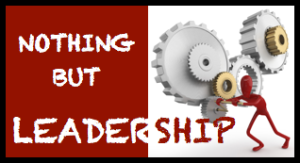“I’m swamped.” “I’m buried.” “I’m getting killed.” S ound familiar? It’s a common refrain everywhere I go these days. CEOs and business leaders are feeling overrun with a myriad of operational details exacerbated by the constant struggle to stay ahead of the information tsunami.

In my work with CEOs across all industries, everyone’s swamped.
Do you feel like you’re barely hanging on, stressed by the fear that you’re missing a lot you should be doing and things might be getting worse?
In an era when we’re all being asked to do more than ever, and with fewer resources than ever, getting control of your personal workflow can provide a significant boost in personal productivity that can make a big difference in your executive and personal performance.
Being Out of Control is Your Real Enemy
As I’ve said here before, the feeling of being overwhelmed is really a matter of being out of control.
The solution is to focus on regaining control. While all of us have various tools we use to manage our personal productivity, many of those tools are dull and inadequate to the task.
Let’s dig a little deeper and suggest some tools to help relieve that feeling of “overwhelm.
Is Email “really” the culprit?
The relentless flood of e-mail is often cited as the principal villain.
In our eagerness to stay on top of things, we’ve accepted, if not encouraged, more of this communication, and as a result, we get copied on way too many e-mails just to keep us informed, even when they don’t require any action on our part.
In return, we often respond by sending increasingly cryptic messages that are barely decipherable.
Have you taken to time to understand your workflow?
It’s a good time to step back for a moment, to take a more strategic look at our personal workflow and implement some changes that can make a lasting difference.
You will find that gaining full control of your workflow, including those things that you’re not going to do, is the shortest path to stress-free productivity.
[pullquote]Dost thou love life? Then do not squander time, for that is the stuff life is made of. ~ Benjamin Franklin[/pullquote]
How much have you missed without a trusted system?
How many times have you caught yourself forgetting to check in on a parent or sibling as often as you like … or regularly following up with a sick friend or struggling colleague … or missing something that you promised would be done by now?
We all get buried, get down in the bunker and the next time we look up, it’s Friday afternoon. A complete and systematic approach to everything that has your attention will allow you to control the myriad details that make up your professional and personal life.
You’ll be amazed at the relief you’ll feel by managing all of the things you’re not going to do, which by definition allows you to make choices about what you are going to do, and, wondrously, allows you to reassert some control in your life.
If you can implement a trusted system that will help you track everything that has your attention, you’ll find that the GTD system has a lot of value and is a good place to start.
The “Getting Things Done” System
David Allen’s landmark book, “Getting Things Done”, is a good place to start. In short, the “GTD” system is a comprehensive process designed to help you gain full control of everything that requires your attention … and there’s a lot on your mind, isn’t there?
- Business,
- Customers,
- Employees,
- Spouses,
- Children,
- Parents,
- Friends,
- Church,
- Community … and the list goes on.
For me, the principal advantage of the GTD process is that you gain control of current reality and learn to keep track of the total inventory of your commitments.
If you don’t step back and do this, nothing’s going to change
I know you’re probably thinking … I don’t have time to catalog everything that has my attention … and I certainly don’t have time to read a book about it.
I hear that, but here’s where your calculation goes wrong:
You are thinking too much about what you have to do today, tomorrow and this week … and thinking too little about the longer term advantages of an improved workflow and a trusted productivity system.
Imagine that you took a few hours to read this book … after which you might spend a full day, maybe more, to capture and record everything in a trusted system so you finally get control over all the things you care about.
Let’s say it takes you 2 full days to get all that done … 16 hours of concentrated effort.
Nice try, but I still don’t have time.
Again, you may be thinking,
“I don’t have two days to mess with this. I have too much to do.”
But what if you take into account the next 1 or 5 or 10 years.?
What if you could improve your productivity by even 30 minutes a day, no longer missing important things that require your attention … AND earning those 30 minutes to invest in any way you’d like?
What does that look like?
Let’s assume you’re not working any weekends at all (dreaming is so much fun!) … and are working five days a week for just 48 weeks/year. (Now I’m hallucinating.)
If you save … – 30 minutes per day, – that amounts to 7,200 minutes saved in that year, or – 120 hours saved, or – 15 days of additional time you can apply any way you wish.
That’s the equivalent of 3 additional weeks of vacation or 3 more weeks of productive accomplishment, or any combination thereof.
Here’s what you’re saying now
“That’s unrealistic. What if I save only 15 minutes per day?”
If you are really putting these principles to work, even 30 minutes/day underestimates the productivity achievements. Even so, the simple math saving only 15 minutes/day means that you will save 7.5 days per year, far more than the few days you invested in developing that system in the first place.
And what if it gives you an hour a day? An extra 6 weeks/year? Wow!
AND … that’s only for Year 1. The next 5 or 10 or more years will produce even greater savings, far out shadowing the modest investment of the few days you devoted up front.
Wouldn’t you invest some time to develop other skills?
I’m pretty sure if you wanted to learn to play golf (assuming you’re a real glutton for punishment ), you would likely take some lessons … practice … practice some more… and suffer many agonizing rounds before your game started to take shape.
I’m equally sure if you wanted to develop other skills, like woodworking or car repair or scuba diving, you would devote some time learning how to get the most out of the limited time you have
Follow this recipe and you’ll have this time.
Mind Mapping can give you a one-page overview
Another tool I’ve used is mind mapping.
In essence, mind mapping is a graphic technique that helps to create an organized and graphic display of related items. This has become an increasingly popular form of software, too, with products like iThoughtsX, The Brain and others, providing easily accessible tools.
It’s very helpful to keep a one-page mind map in front of you at all times. A mind map – an Executive Dashboard as I call it – allows you to easily diagram an organized display of your most important projects and initiatives.
It can help you stay focused on the major people and activities in your life and ensure that when the next flood overruns the levee, you’ll be able to focus on the most important elements of your life. (I have provided a sample version of an Executive Dashboard on the Exkalibur Web site.)
Don’t keep taking shortcuts
All of this requires some work, and many executives, while eager to improve their productivity, are unwilling to invest in the process.
It will take a commitment on your part to get there as you initially capture all of the assorted and scattered details of your life, but I promise you it’s worth the effort.
If you stick with it … truly invest some quality time in the system you’re going to use … the rewards will be abundant.
Otherwise, you’ll get what you usually get by NOT INVESTING … Nothing!
Question: What are you going to do RIGHT NOW to pick up the pace and get more done? Why not join the conversation and share your thoughts and comments? You can add your message easily by clicking the link to our Facebook Page or @Exkalibur on Twitter. I visit them every day and look forward to discussing these ideas and concepts with you.



